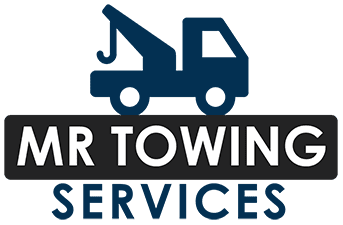Private property towing is a common practice employed by property owners to enforce parking rules and regulations on their premises. Whether you own a commercial property, a residential complex, or a shopping center, understanding the intricacies of private property is crucial. This comprehensive guide aims to provide you with the necessary knowledge about private property, ensuring you are well-informed and prepared in case such a situation arises.
What is Private Property Towing?

Private property towing refers to the act of removing unauthorized vehicles from privately owned properties. Property owners or management companies usually employ towing companies to enforce parking regulations and maintain order on their premises. It is important to note that private property is legal, provided certain conditions and guidelines are followed.
Legality of Private Property Towing
Private property towing is legal, but it must adhere to specific regulations to protect the rights of vehicle owners. These regulations vary between jurisdictions, so it’s essential to familiarize yourself with the local laws governing private property in your area. These regulations typically cover aspects such as signage requirements, notice periods, and the process of releasing towed vehicles.
Signage and Notice Requirements
To ensure compliance with the law, property owners must prominently display signage that clearly communicates the parking rules and regulations. These signs should be visible from all entrances and exits of the property, providing notice to visitors and vehicle owners about the towing policy. The signage should include information such as the name and contact details of the towing company responsible for enforcing the regulations.
Moreover, the law often mandates a minimum notice period that must be given to vehicle owners before their vehicles can be towed. This notice period allows vehicle owners an opportunity to rectify any parking violations and avoid towing.
Common Reasons for Private Property Towing
Property owners typically implement private property to address parking violations and maintain order on their premises. Some common reasons for private property include:
- Illegally parked vehicles: This includes vehicles parked in designated fire lanes, handicap spaces without proper permits, or in areas marked as no-parking zones.
- Expired or invalid permits: If a property requires permits for parking, vehicles without valid permits may be subject to towing.
- Blocking access or driveways: Vehicles obstructing entrances, exits, or driveways can cause inconvenience to others and may be towed.
- Abandoned or inoperable vehicles: Vehicles left unattended for an extended period or those that are inoperable and pose a safety hazard can be subject to towing.
Towing Process and Fees
When a vehicle is towed from private property, it is typically taken to a designated impound lot or towing yard. To recover the towed vehicle, the vehicle owner must contact the towing company and follow their instructions. This usually involves providing proof of ownership, valid identification, and payment of any associated fees.
The fees for private property can vary and may include charges for towing, storage, administrative costs, and any outstanding parking violations. It is important to note that these fees are separate from any fines or penalties imposed by local authorities for parking violations.
Recourse and Dispute Resolution
In some cases, vehicle owners may believe their vehicle was wrongfully towed or that the fees charged were unreasonable. It is crucial to be aware of the dispute resolution process provided by the local regulations. This process typically involves submitting a formal complaint or seeking mediation to address any concerns or disputes regarding private property.
Tips to Avoid Private Property Towing
To avoid the inconvenience and expense of private property, consider the following tips:
- Familiarize yourself with the parking regulations of the property you are visiting or parking on.
- Always park in designated areas and avoid blocking access or driveways.
- Observe any posted signs regarding parking restrictions or time limits.
- Ensure that your vehicle’s registration and permits are up to date, especially if required by the property.
- If you need to park for an extended period, seek permission from the property owner or management.
Conclusion
Understanding the ins and outs of private property towing is essential to both property owners and vehicle owners. By familiarizing yourself with the local laws and regulations, signage requirements, and towing process, you can ensure a smooth experience and avoid potential conflicts. Vehicle owners should always park responsibly and respect the parking regulations of private properties to prevent the inconvenience and costs associated with private property.
MR Towing Services, a reputable towing service Allen, TX, tows practically every type of vehicle you can think of. Our comprehensive towing services include cars, SUVs, trucks, RVs, box trucks, motorcycles, and tractors. If we have the expertise to handle the towing of tractors, you can trust us to efficiently and safely tow your car as well! Don’t hesitate to reach out to us today at 214-238-5134 for all your towing needs!
Contact Us
Email Us
(214) 238-5134
115 Richardson Ct.
Suite MR
Allen, TX 75002
Our other locations in the Dallas-Ft. Worth area:
1225 Belt Line Rd
Suite 120
Garland, TX 75040
9220 Skillman St
#129-A
Dallas, TX 75243
2627 S Cooper St
Suite 102
Arlington, TX 76015
822 Custer St
Arlington, TX 76014
